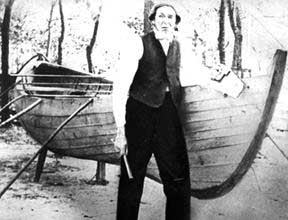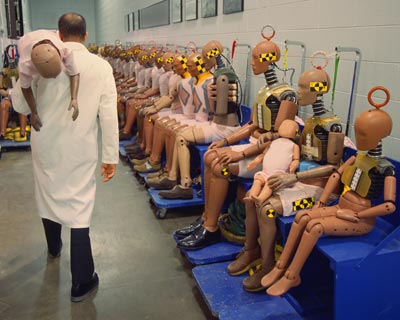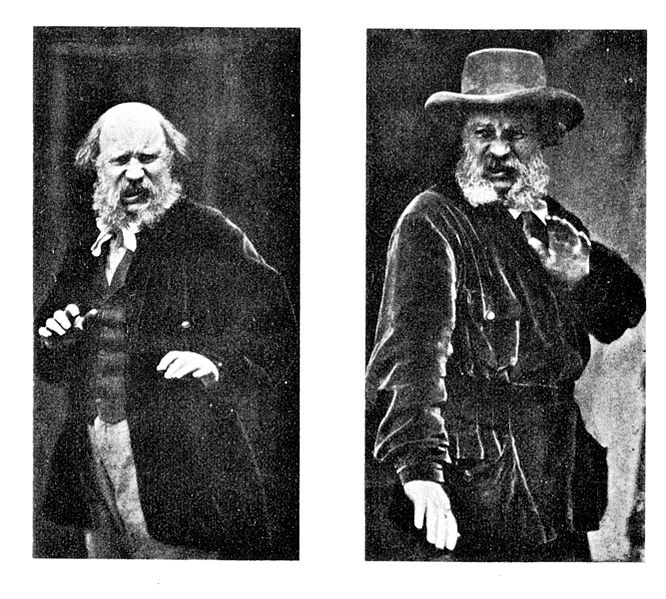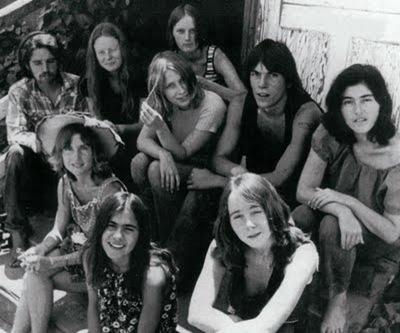
The ending of Mike Nichols’ film version of The Graduate was an ambiguous, not happy, one. A young idealistic couple on the run–but where to? And would they soon run out? For Charles Webb, the author of the novel the film was based on, and his wife, Eve, life has also been quixotic and difficult, as you might imagine it would be for devoted nudists who continually give away all their money. The author and his mate (who eventually shaved her head and changed her name to “Fred”), were profiled in a 1988 People article. The opening:
“It was an image that captured the rebellious spirit of a generation: Dustin Hoffman pounding frantically on the church window, shattering the sounds of silence with his primal scream, “Elaine!” But the 1967 blockbuster The Graduate did not quite end at the exhilarating moment when Benjamin Braddock broke up the wedding of Mrs. Robinson’s daughter, carrying her off to reckless freedom and true love. In the final frames, as Ben and Elaine stole away on a bus, their tentative smiles seemed to ask, ‘What next?’
Imagine this scenario: Benjamin and Elaine get divorced but never live apart. Remaining true to their unconventional principles, they squander whatever money comes their way. Arriving at middle age, they don’t settle for sipping cynicism on the sofa. Instead, we find the idealistic pair huddled in the back of a battered VW bus—their only home—down to their last few hundred bucks.
That just about sums up the fate of author Charles Webb, who wrote The Graduate, and his own Elaine, who now calls herself Fred. Maybe Ben—and Charles—should have gotten into plastics. ‘It’s hard to say how we got to this point,’ says Webb, 49, as he sits in a Bethel, Conn., diner. His features marked by a perpetual frown, he can barely conceal his anxiety over their situation yet seems equally incapable of discussing it. Fred, 48, although concerned about winter’s approach, remains hopeful. ‘What we need now is a place to settle,’ she says. ‘Then Charles can get back to work.’
Webb, after all, was once a literary rising star who published The Graduate, his first book, at age 24 in 1963. During the next 15 years, Webb says, he made almost $150,000 from that and five other books, including the $20,000 he received for film rights to The Graduate. ‘All of that seemed like a lot to us 10, 20 years ago,’ says Webb. ‘But money was never important to us.’ Fred agrees. ‘In fact,’ she says, ‘we have given away just about everything we owned.’ That includes two houses, a Rauschenberg drawing and a Warhol print—all donated to nonprofit organizations. For the past 10 years, Charles and Fred have subsisted on diminishing royalties from paperback sales of The Graduate, which now amount to about $2,500 a year.
Since the couple pulled up stakes in Southern California and arrived in Massachusetts last July with their mutt, Mrs. R. (named, of course, for the story’s Mrs. Robinson), and a few thousand dollars in savings, the fates have not been kind to the Webbs. First, they had hoped to settle in Williamstown, home of Charles’s alma mater, Williams College, where he planned to begin writing a sequel to The Graduate. Unable to find a place they could afford, they were taken in by a woman in Bethel, Conn., who read of their plight in a newspaper—but threw them out after learning of their fondness for nudity.”





























